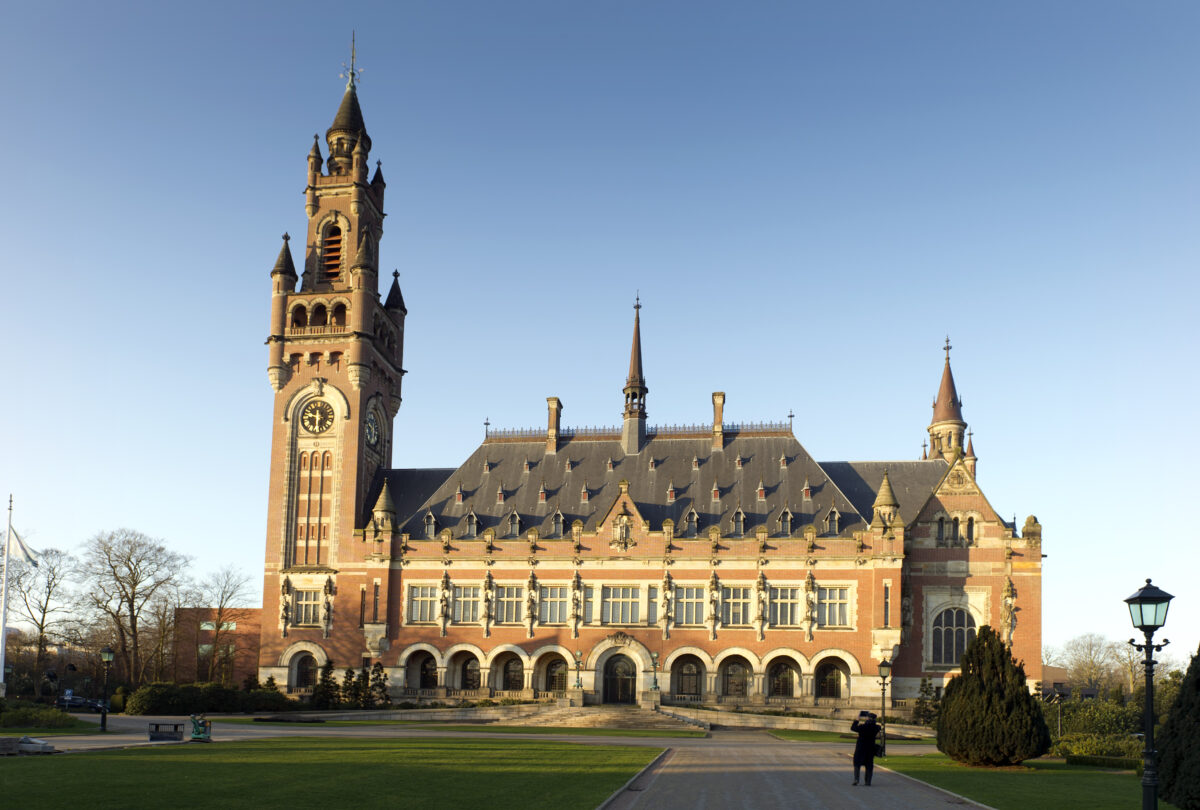Amid the case about “Genocide” in Gaza, in a groundbreaking decision, the International Court of Justice (ICJ) mostly rejected Ukraine’s assertions on Wednesday. The court determined that Russia had partially violated an anti-terrorism treaty, spotlighting its failure to investigate the financial support for pro-Russian separatists in Ukraine, particularly those associated with the tragic downing of Malaysia Airlines flight MH17 in 2014. Despite this acknowledgment, the ICJ predominantly dismissed Ukraine’s pleas, declining to assign full responsibility to Russia for the MH17 incident and rejecting Ukraine’s plea for compensation. This outcome underscores the intricate challenges involved in legal proceedings, leaving key aspects of Ukraine’s case unaddressed by the ICJ.
ICJ’s Partial Finding on Terrorism Financing
The ICJ clarified that, according to the convention, only cash transfers could be considered as support for terrorist groups. Notably, the court explicitly excluded weapons or training camps from the definition of support. This exclusion led the ICJ to conclude that the alleged supply of weapons to armed groups in Ukraine fell outside the material scope of the convention.
Narrow Scope of Terrorism Financing Convention
The narrow scope of the terrorism financing convention sheds light on the complexities of defining support for alleged terrorist activities. It underscores the challenges in establishing legal responsibility, especially in cases involving intricate geopolitical dynamics.
Rejection of Ukraine’s Pleas
Despite finding Russia in violation of the anti-terrorism treaty, the ICJ rejected most of Ukraine’s pleas. The court explicitly declined to determine Russia’s responsibility for the MH17 downing and dismissed Ukraine’s request for compensation to the victims. The ICJ’s decision brings a mixed outcome to Ukraine’s efforts to hold Russia accountable for its actions.
Limited Acknowledgment of Russian Failure
The only acknowledgment by the ICJ was that Russia was “failing to take measures to investigate facts” related to individuals allegedly committing offenses. This limited finding falls short of Ukraine’s broader accusations against Russia and underscores the challenges in establishing legal responsibility in complex geopolitical cases.
Violation of Anti-Discrimination Treaty in Crimea
Parallel to the terrorism financing aspect, the ICJ addressed Ukraine’s claim that Russia violated an international convention on racial discrimination in its treatment of the Tatar minority and Ukrainian speakers in Crimea. The court found that Russia had not taken sufficient measures to enable education in Ukrainian, acknowledging a violation of the anti-discrimination treaty.
Lack of Compensation for Crimea’s Victims
However, despite acknowledging the violation, the ICJ did not grant compensation to Ukraine. This decision leaves a lingering question about the accountability mechanisms available to victims of discrimination and raises broader issues about the enforcement of ICJ decisions.
Diplomatic Exchange and Background
The case was initiated by Ukraine in 2017, predating Russia’s full-scale invasion of Ukraine in 2022. The diplomatic exchange between Russia’s ambassador to the Netherlands, Alexander Shulgin, and Ukrainian diplomat Anton Korynevych highlighted the contentious nature of the proceedings. The background of Russia’s illegal occupation of Crimea in 2014 remains a crucial context in understanding Ukraine’s accusations against Russia.
Future Implications
The ICJ’s irrevocable judgments hold substantial implications for future international legal cases, particularly those concerning state responsibilities, terrorism financing, and anti-discrimination measures. The upcoming verdict in another case, where Kyiv accuses Moscow of invoking the UN’s Genocide Convention to justify the 2022 invasion of Ukraine, is poised to exert additional influence on the narrative surrounding intricate geopolitical issues, shaping the course of legal discourse in the international arena.
The ICJ’s recent decision, while acknowledging Russia’s partial violation, underscores the intricate challenges in establishing culpability in cases involving geopolitical complexities. The rejection of Ukraine’s broader claims and the specific criteria on terrorism financing highlight the evolving landscape of international legal standards. As the court’s influence extends into future cases, the pending ruling on the Genocide Convention adds another layer to the unfolding narrative. The ICJ’s role remains pivotal in shaping diplomatic discourse and holding nations accountable, emphasizing the ongoing importance of international legal proceedings.



